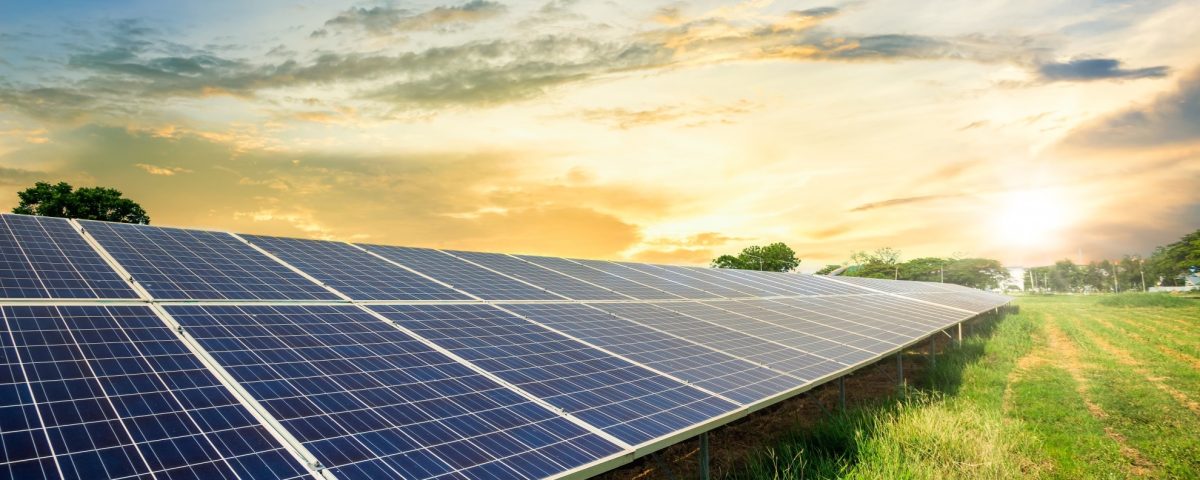Our comprehensive legal guide to installing solar panels in Hungary is useful reading for all businesses and individuals considering such an investment, large or small. In our blog article we answer the most frequently asked questions from our clients.
At the request of the Municipality of Budapest, Dr. Ágnes Gajdics, the expert of the Environmental Management and Law Association (EMLA) prepared a study on the current regulation of solar panel installation in Budapest and the administrative and other obstacles to the faster spread of this form of renewable energy. Based on the study, we have prepared a practical summary for anyone who wants to cover at least part of their household or business electricity needs with solar energy.
What are the main energy management aspects to consider before installing solar panels and what are the costs?
Solar panels with a capacity of less than 50 MW can be installed by private individuals and companies as well in order to reduce their energy costs. These include a large number of small household-scale installations, which currently face a number of administrative and other obstacles due to the unclear legal environment. To overcome the following challenges and to find the most appropriate technical and legal solution, it is strongly recommended to seek expert advice. The challenges facing a solar installation project starting today:
- In Hungary the distribution licensee (the electricity grid operator) often makes it difficult for solar operators to connect to the grid.
- In many cases, the legislation imposes technical requirements that are not justified from technical point of view and also very expensive to implement, such as the installation of a new metering point for each new solar panel.
- From 30.04.2021, only inverters with a maximum capacity of 2.5 kW (DC to AC connection) can be connected to the central system operator with one phase, above 2.5 kW capacity two phases are required. An inverter with a capacity of 2.5 kW can feed a solar system of up to 3 W, which is not always enough to cover the energy needs of a family house. It is less costly to install more phases when installing solar panels than to add more phases to the existing structure later.
- One small solar plant often cannot meet the needs of large consumers, therefore the same user might install several of them. However, such user has to obtain each permission separately, one solar panel at a time, and pay the same procedural fees.
What is the accounting system for energy costs and who should be consulted in advance?
Once we have installed a solar panel (and thus become a “generator-consumer” in Hungarian terminology and an “active user” in EU terminology), we have to connect our power plant to the central grid. If the energy produced by our solar panels does not cover our needs, we can buy extra energy from the central system. If, on the other hand, we can produce surplus energy with our solar panel, we can sell the surplus to the central grid operator. It is possible that in the future private individuals might be able to trade their surplus energy between themselves, but the legal framework for this has not yet been elaborated.
Currently, there are two types of settlement systems for the purchase and sale of energy: the so-called “balancing” and the “gross settlement” systems. In the “balancing” accounting system, which is beneficial for the producer-consumer and is currently common in Hungary, we, as solar installers, sell the surplus energy we produce and buy energy from the central system at the same price. In the gross settlement system, we can buy electricity at a higher price than the price at which the surplus energy we generate is bought from us by the central system. The introduction of a gross settlement system in Hungary has recently been seriously considered at legislative level, which has discouraged many people from investing in solar panels. Now the gross settlement system has been taken off the agenda, but it remains a factor of uncertainty in the public eye.
In theory, it is possible for a solar installer to generate solar energy on a property owned by someone else. However, the solar installer can then only exchange electricity with the central system at its own point of connection (registered to him or her as generator-consumer), therefore this possibility is still limited in practice.
The so-called “renewable energy community” (REC) is a new legal concept in the field of solar PV management. These are entities in the form of a cooperative or a non-profit company, which are set up by its members for the purpose of generating, storing or sharing electricity from renewable sources by adopting their articles of association. In the case of condominiums, housing cooperatives or jointly owned properties, several solar panel installers may form a REC on a given property by agreeing to share energy use between themselves and appointing a person to represent them. The creation of such innovative renewable energy communities will be supported by current and future public and EU subsidies.
What financial resources can be built on?
In Hungary, the main obstacle to installation of solar panels is currently not some uncertainties in the legal framework or administrative challenges, but the lack of financial support to get these investments off the ground. Many Hungarian households cannot afford the costs, which are usually in the order of millions of forints. And although companies often have the financial means to install solar panels, their energy needs are much higher.
The state and local authorities have an important role to play in counterbalancing these factors. There are currently several subsidies available in Hungary for the installation of solar panels, and the number of these is expected to increase in the coming years. Various schemes are also available from European Union sources to encourage the installation of solar panels, either in the form of subsidies or loans at preferential interest rates. Accordingly we do not have to rely solely on our own wallets if we want to open up to renewable energy. However, it is worth being careful when choosing the financial contribution to be used, because the exact conditions and the amount of the contribution to the investment costs depend on the specific application or financial scheme.
In terms of financial implications, it is also important to consider the long-term feasibility of the investment. Since solar power plants reduce electricity costs significantly, even to install a household-sized solar panel may be profitable within a few years.
What are the basic rules for installing solar panels in Budapest and other areas of the country?
The framework for the installation of solar panels is laid down in Act LXXXVI of 2007 on electricity and its implementing regulations. In addition, the building regulations, the urban planning ordinance and, where applicable, the urban design manual of the municipality in which the solar panels are to be installed must be taken into account before installing solar panels in Hungary. The first two are binding regulation, while the design manuals provide guidance and recommendations on the installation and operation of solar panels.
In the case of Budapest the situation is specific, as the capital and each of its districts have adopted building regulations, urban design ordinances and urban design manuals. However, it is very important to consider which municipality is responsible for the area where the solar panels are to be installed. In areas under the direct administration of the capital (e.g. Margaret Island), the regulations of the capital will be applicable, while in other areas the regulations of the respective district will be applicable. Not all the capital’s districts have a place for solar energy in their urban planning concepts, and the relevant rules and guidelines often don’t say anything or only indirectly mention this energy source.
What other detailed rules are applicable when we install solar panels?
Before installing solar panels, we need to consider other detailed rules on environmental, agricultural and cultural heritage protection in addition to the building regulations in the given municipality.
If the area covered by a solar panel reaches 2 hectares (or 0.5 hectares in a nature reserve), a prior environmental assessment must be carried out. To this end, the investor must submit a preliminary environmental documentation of the investment to the environmental authority. On the basis of the documentation, the authority will assess the likely environmental impacts and, taking this into account, decide whether to grant an environmental permit or to impose a condition on the installation.
If the solar panels are installed and operated on agricultural land, they can be considered as using the land “for other purposes” (than agriculture). This is the case, for example, where the investment has resulted in a land previously used for fruit cultivation but, as a result of the solar installation, can no longer be used for this purpose. In such a case, the permission of the land protection authority is required to formally change purpose for which the land is used. The rules for small power plants on agricultural land have recently become much more flexible, according to which if the cultivator (owner or user) of the land installs a small power plant with a nominal capacity of up to 0.5 MW, no authorisation procedure is required and no land protection fee is payable. The land protection charge is generally payable by the owner of the land for using the agricultural land “for other purposes” and is set by the locally competent land registry office. Further relief has been granted for solar panels installed on below-average quality agricultural land and for the installation of so-called agro-photovoltaic systems. Agro-photovoltaic systems (agroPV or APV) are energy and agricultural solutions where agriculture and electricity production with photovoltaic solar panels take place on the same land.
Currently, there are no specific incentives for the installation of solar panels on agricultural land through brownfield investments.
For large investments above HUF 500 million, prior archaeological documentation is mandatory, and several archaeological and monument protection rules restrict the installation of solar panels.
What kind of expert help can you rely on?
Sustainable energy management is in the common interest of all of us. SimpLEGAL’s dedicated team is at the disposal of anyone who needs expert legal advice on applications for solar financing, solar permission procedures or any other issue related to the operation of solar panels.
Source of cover photo: Adobe Stock

